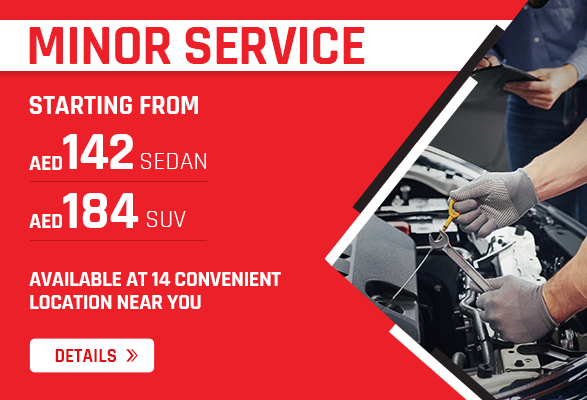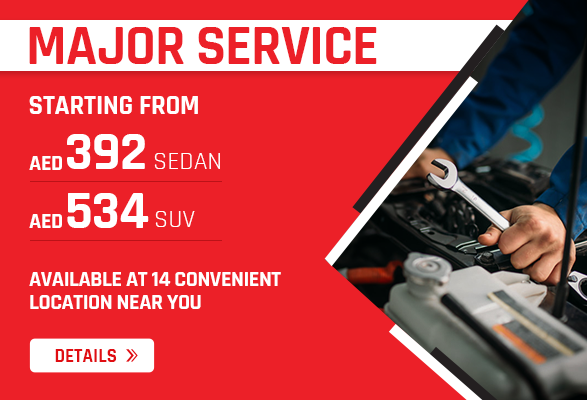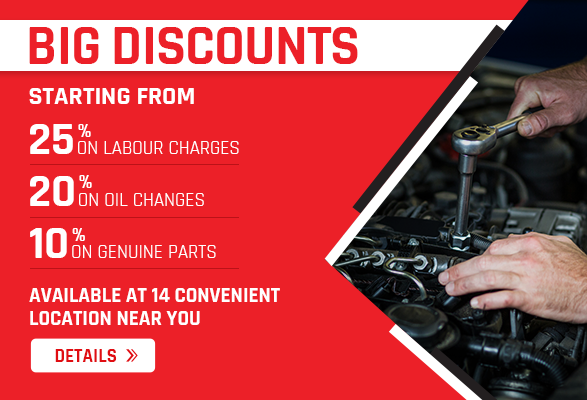Significance of Regular Oil Changes on Engine Performance
When it comes to taking good care of your car in UAE, there's a fundamental aspect that holds a lot of importance – taking proper care of the engine. The engine is like the heart of the car, and just like how we need to eat well and exercise to keep our hearts healthy, the engine needs good engine oil to stay in good shape.
While you might have heard about things like adding turbochargers or making big changes to the engine for better performance, there's something even more straightforward that makes a big difference – those regular oil changes. While those other changes can make the car faster or more powerful, they're built on the foundation of having a well-maintained engine through proper engine oil replacement.
It might sound like a small thing, but sticking to the schedule recommended by the car experts your car can have substantial benefits. On the flip side, if you forget about changing the oil, it's like not taking care of your body and then wondering why you're not feeling your best.
As we dive deeper into the world of engine care, you'll understand why skipping oil changes isn't a good idea. You'll see how this simple practice contributes to smoother, more efficient, and longer-lasting engine life. Whether you're aiming for better acceleration or improved fuel efficiency, the importance of regular oil changes can't be denied.
Why Does Your Car Needs Engine Oil
Engine oil is more than just a lubricant; it's a multifunctional fluid that plays a critical role in maintaining your engine's health. The primary functions of engine oil include lubrication, cooling, and cleaning. It forms a protective layer between moving parts, reducing friction and wear.
Engine oil also acts as a cleaning agent, removing debris, sludge, and combustion byproducts from various engine components. The type of engine oil you choose – whether conventional, synthetic, or a blend – also influences these functions.
Effects of Dirty or Old Engine Oil on Engine
Many people wonder, can dirty and old oil damage your car engine? The simple answer is yes. Dirty oil or old oil can create big issues for your car and result in really costly repairs that you could prevent.
Just having oil in your car isn't enough to keep it running smoothly. As time goes by, the oil gets worse and that's why you need to change it regularly. Even if you follow the schedule for car oil change, it's also really important to replace oil filter. If the oil filter replacement doesn't work well, dirty and bad stuff might end up in the oil.
Using dirty oil and old oil can actually be worse than not using any oil at all. When oil gets thin or gets mixed with dirty stuff like metals and other junk, it can turn into something that corrodes your engine parts. One clear sign of this is your car using more fuel than usual. Also, your engine could get too hot or even stop working because of the dirty oil. It's like a warning that you need to take care of your car's engine.
Benefits of Regular Car Oil Change
Regular oil changes are like giving your engine a refreshing spa treatment. By maintaining a consistent oil change schedule, you ensure that your engine is always powered by clean, properly lubricated oil.
The benefits are substantial. Improved lubrication translates to reduced friction, which in turn enhances fuel efficiency and prevents premature wear. Proper cooling helps maintain optimal operating temperatures, safeguarding the engine from overheating-related issues.
Additionally, regular oil changes prevent sludge accumulation, ensuring that the engine operates smoothly and efficiently over the years. This proactive approach not only extends your engine's lifespan but also saves you from the financial strain of major car repairs down the road.
Car Oil Change Signs
Your engine communicates its needs through various signals. Ignoring these signs could lead to serious consequences. Dashboard warning lights, such as the "Check Engine" or "Oil Change" indicators, should never be ignored. Unusual engine noises, like knocking or tapping, could indicate poor lubrication due to old or dirty oil.
Reduced fuel efficiency might suggest friction-related issues caused by degraded oil. To determine if your oil needs changing, a quick check of the dipstick can provide insights into the oil's color and consistency. Staying vigilant and addressing these signs promptly ensures that your engine continues to run smoothly.
If you're interested in knowing the signs that show that your car needs an oil change, feel free to read our comprehensive blog on the topic.
How Often Should You Change Your Car Oil?
In earlier times, cars generally required an oil change every 3,000 miles. However, advancements in lubricants have extended the time between services significantly. Nowadays, the recommended interval spans from 5,000 to 7,500 miles, and for vehicles using full-synthetic motor oil, it can even stretch to 15,000 miles.
Irrespective of the frequency of your oil changes, it's advisable to perform a monthly oil level check and add oil as necessary. If your driving is limited, most car manufacturers suggest an annual oil change.
Where Should You Get an Oil Change in Dubai
When it comes to maintaining your vehicle's peak performance, including tasks like checking fluid levels and replacing filters, you might consider handling an oil change on your own in your garage or driveway. However, if you're uncertain about performing the job safely and accurately, it's wiser to entrust it to a professional.
PitStopArabia's Car Oil Change Services in Dubai and UAE provide a seamless solution for your oil change needs. Our team of skilled professionals ensures that your vehicle receives the highest quality treatment. Unlike dealerships that can be pricier, our services offer both affordability and top-notch performance.
For those seeking affordable oil change service in Dubai, choose PitStopArabia's Car Oil Change Services because by choosing them you're not just ensuring quality, you're investing in the longevity and performance of your vehicle.

























Conclusion
By taking proactive steps to maintain clean and properly lubricated engine oil, you're investing in your vehicle's performance, efficiency, and longevity. Remember, a well-maintained engine isn't just a matter of convenience, it's a testament to your commitment to responsible vehicle ownership. So, as you embark on each journey, know that the simple act of changing your engine oil regularly isn't just a chore, it's a promise to your engine's well-being and your driving pleasure.